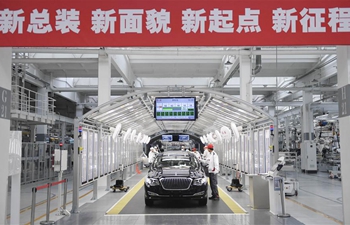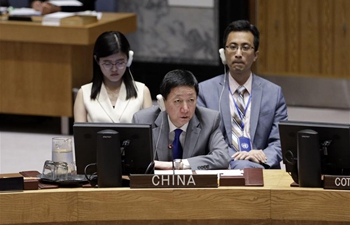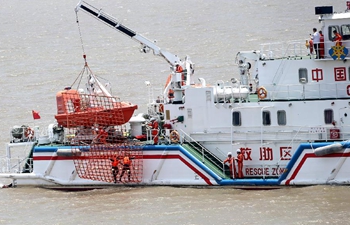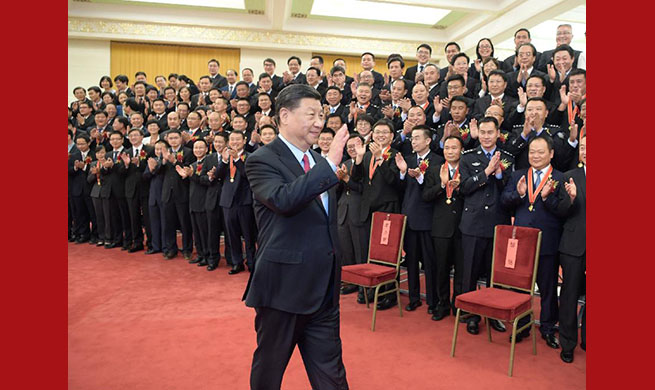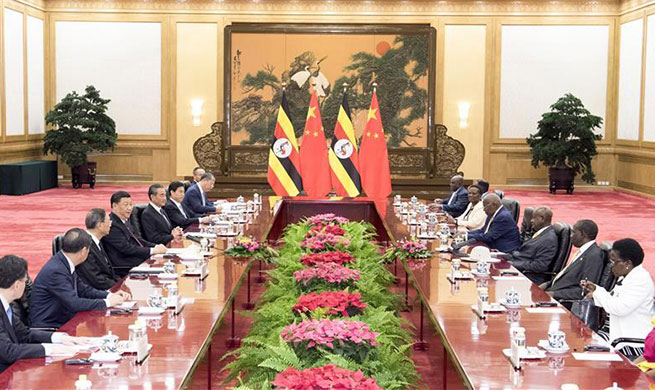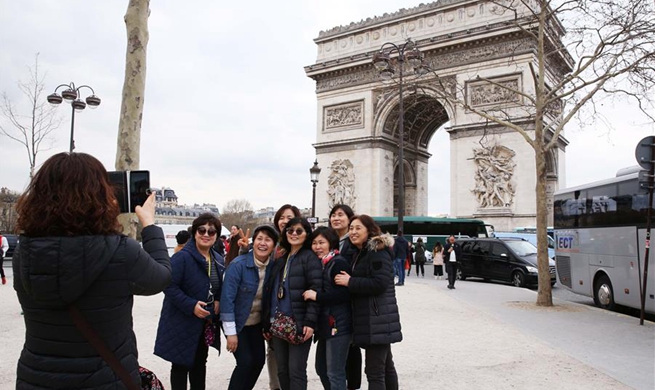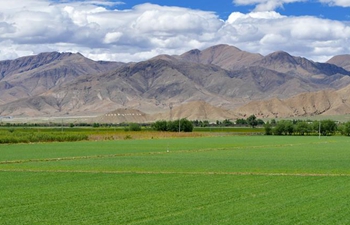ANKARA, June 25 (Xinhua) -- Sunday's polls in Istanbul, the biggest city of Turkey with 15 million residents, seen as a sample of political tendencies in the country, were a test for the ruling party, said local experts.
Therefore, Turkey's President Recep Tayyip Erdogan may take bold changes in his party and cabinet after suffering a major blow in Istanbul municipal election.
Turkey's Supreme Election Board on Monday declared the main opposition Republican People's Party (CHP) candidate Ekrem Imamoglu as the winner of the June 23 poll with 54 percent of the vote, compared with 45 percent for the ruling party's Binali Yildirim.
Imamoglu, mayor of Istanbul's Beylikduzu district for five years, beat Yildirim by a margin of some 13,000 votes in the first election on March 31, but the result was annulled later by the Supreme Election Board over the ruling Justice and Development Party (AKP)'s accusation of irregularities.
"Change of cabinet will be an agenda of the AKP. Maybe not immediately, but the party will see changes in its senior staff," Ahmet Kasim Han, a professor from Altinbas University, said.
He pointed out that "wrongdoings" of some senior AKP people in the party strategies, such as pursuing a do-over in local elections, angered voters, even the AKP supporters.
The AKP lost with a narrow difference of around 13,000 votes on March 31, but more than 800,000 votes of difference is too much, he stated.
Han stressed that the figure gap indicates a serious difference in the voters' attitudes towards the ruling party.
Turkish politics will see practical political consequences of Erdogan's biggest defeat of his political career and a debate on a possible early election will be on the country's agenda, Han said, adding that 2021 might see the snap elections, earlier than 2023 as scheduled.
Imamoglu had served as Istanbul mayor for less than one month before he was disqualified by the election board on May 6 and the board called for re-election on June 23.
The election is seen as a turning point for the country's future, as it ends the AKP and its predecessor party's 25-year-old hold on Istanbul, Turkey's economic hub that accounts for one-third of the country's GDP. The ruling party also lost capital Ankara to the opposition candidate after 25 years of ruling.
Imamoglu led the polls even in the predominantly religious districts of Uskudar, Fatih and Beyoglu in Istanbul, which the AKP confidently won in many years including the March 31 elections.
Some AKP members started to ask for change at the night of Sunday's polls.
"We lost Istanbul because we lost moral superiority. We can be hopeful again by sincere self-criticism. For this, we must leave the past and myths and look at the future and the dreams of young people, focusing on rationality, rule of law, separation of powers and fundamental rights, " Mustafa Yeneroglu, Istanbul lawmaker of the AKP, said on his Twitter account.
Unemployment and inflation have been main dynamics of Erdogan's failure in many provinces in March 31 elections.
Turkey saw a period of rampant growth under Erdogan's leadership as his party came to power in 2002, but the country's economy is in turbulence in recent years. The AKP had strong support particularly from religiously conservative Turks who supported him in more than a dozen national and local elections.
Erdogan achieved a tight control over the state mainly after an administrate system change to the presidency last year. Following Sunday's historic defeat, opinion leaders of the country started to question if the AKP will reform its policies.
The party should embrace an inclusive policy, and focus on "justice," according to Okan Muderrisoglu, a journalist from pro-government daily Sabah.
The AKP relied on major development projects and argued that all segments of the society benefited from those investments, he said, adding that but the party did not introduce policies to prioritize people critical to the ruling AKP.
"But at a time when development slows down and economy shrinks, voters decide on their daily life priorities," he said.




